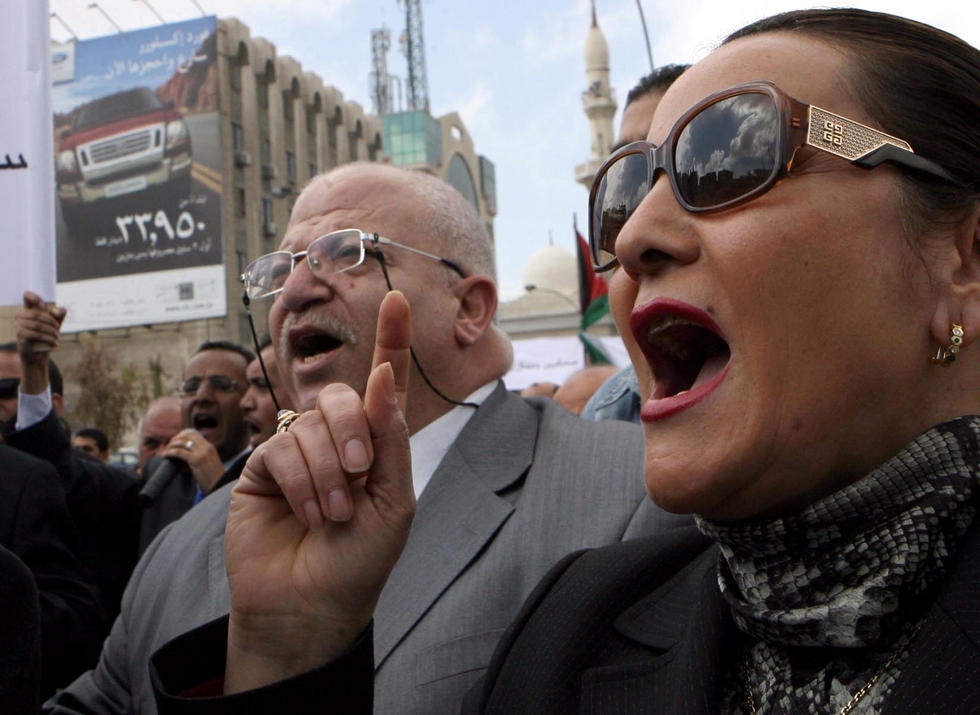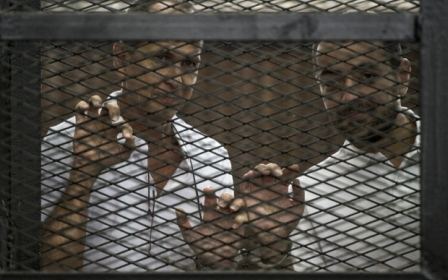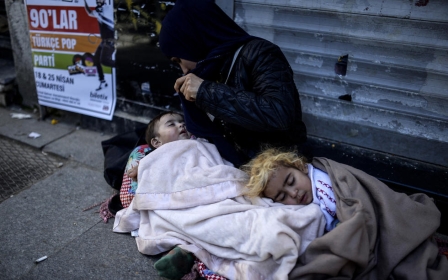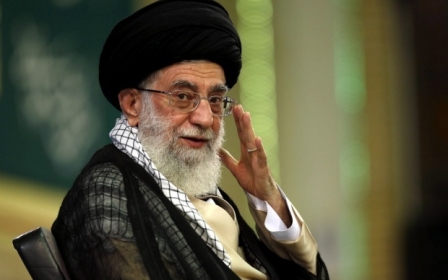Jordan must stop prosecuting journalists, says HRW

Human Rights Watch urged Jordan on Wednesday to stop its pursuit of journalists and to revise its anti-terrorism law, saying the measures were restricting freedom of expression.
“Jordanian authorities are curtailing media freedom by detaining and bringing charges against journalists under broad and vague provisions of the country’s terrorism law,” a statement said.
“Jordan’s concerns over its security situation shouldn’t translate into branding journalists and writers as security threats merely for doing their jobs or expressing themselves peacefully,” said Joe Stork, HRW's deputy Middle East and North Africa director.
Under the anti-terrorism law, five journalists have been arrested this year.
In one case, journalist Ghaza al-Marayat, who works for the government controlled al-Rai newspaper, was held for four days for allegedly violating a gagging order in a report on a foiled terror plot, despite the daily not having been informed of the order at the time of publishing.
In another case, freelance columnist Jamal Ayoub has been imprisoned since 22 April for writing an article that criticised Saudi Arabia’s bombing campaign in Yemen.
Ayoub’s lawyer said that his client was on trial for “disturbing [Jordan’s] relations with a foreign state” under the anti-terrorism law, and that the court rejected numerous bail requests.
Other journalists detained this year are Seif al-Obeidat and the Saraya News website publisher Hashem al-Khalidi, after the site reported on negotiations between Amman and the Islamic State group over the release of a captured Jordanian pilot who was later killed.
“Jordan’s should stop prosecuting journalists and revise its terrorism law to remove vague language used to limit peaceful speech,” added HRW's Stork.
According to the 2015 World Press Freedom Index, Jordan ranks at a lowly 143 out of 180 countries, a drop from its ranking in the previous years (at 141 and 134 in 2014 and 2013 respectively).
Censorship of journalism is not new in the country: in 2013 King Abdullah blocked 300 websites, and in 2012 a law that restricted the freedom of expression for media was widely criticised.
The law was condemned by Reporters Without Borders, who likened it to a sword threatening journalists.
“The new provisions are like a sword poised over the head of every journalist,” RWB reported at the time. “They show that the authorities are determined to bring journalists and their news media to heel, so that dissident views get as little exposure as possible.”
Detaining a journalist for investigation based on their writing appears to violate article 42 of the country’s Press and Publications Law, which prohibits pre-trial detention for media workers for “expressing opinion by word, writing or other means of expression,” said Human Rights Watch.
In April, Jordan amended its 2006 anti-terrorism law to include acts such as “disturbing [Jordan’s] relations with a foreign state”.
As Human Rights Watch reported at that time, the act already existed in Jordan’s penal code and is used to punish peaceful criticism of foreign countries or their rulers.
Instead of having the prerequisite of a connection to an act of violence, the amendments include definitions such as acts that “sow discord” or “disturb public order”. Without further defining these vague offences, the law could be used to prosecute peaceful expression or assembly as terrorism, HRW reported.
If convicted, these offences carry a penalty that range from three to 20 years.
Jordan has been sharply criticised for the censorship measures by human rights groups, as well as from journalists, activists, and the main opposition group, the Muslim Brotherhood.
Middle East Eye propose une couverture et une analyse indépendantes et incomparables du Moyen-Orient, de l’Afrique du Nord et d’autres régions du monde. Pour en savoir plus sur la reprise de ce contenu et les frais qui s’appliquent, veuillez remplir ce formulaire [en anglais]. Pour en savoir plus sur MEE, cliquez ici [en anglais].




